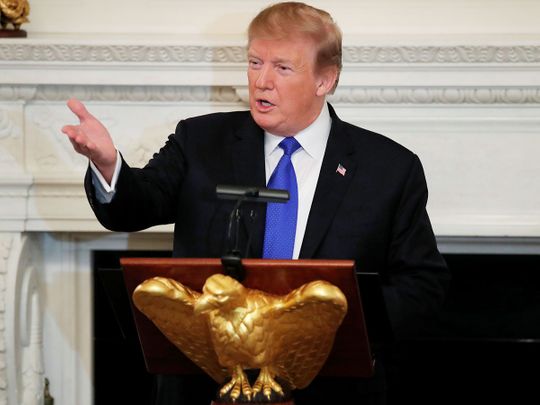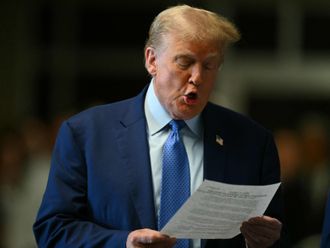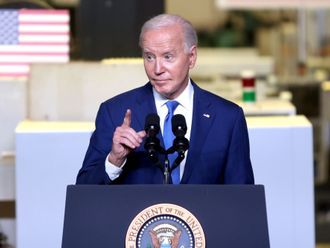
Washington- The House voted Tuesday to overturn President Donald Trump’s declaration of a national emergency on the Mexican border, with just 13 Republicans joining Democrats to try to block his effort to divert funding to a border wall without congressional approval.
House Republican leaders kept defections low after feverishly working to assuage concerns among rank-and-file members about protecting congressional powers and about the precedent that Trump could be setting for Democratic presidents to use for their own purposes.
“Is your oath of office to Donald Trump or is it to the Constitution of the United States?” Speaker Nancy Pelosi asked her Republican colleagues in a speech on the floor before the vote. “You cannot let him undermine your pledge to the Constitution.”
Just one member short for disapproval
The resolution of disapproval, which passed 245-182, must now be taken up by the Senate, where three Republicans have already declared their support, only one short of the number needed for Congress to ratify a stinging rebuke of Trump’s efforts.
It remains highly unlikely that opponents will muster the votes to overturn a promised veto of the resolution. But final passage of a measure to assert Congress’ constitutional authority over spending is sure to bolster numerous lawsuits that maintain that Trump’s declaration is an unconstitutional end run around Congress’ lawful power of the purse.
Many of the 13 Republicans who defected in the House were adamant in their arguments. Rep. Jim Sensenbrenner of Wisconsin, a veteran lawmaker who once helped manage Republican efforts to remove Bill Clinton from the White House, made it clear he supported the border wall.
But, he said, “insufficient action - however frustrating it may be - is still the prerogative of the legislative branch. It is imperative that no administration, Republican or Democratic, circumvent the will of Congress.”
In the Senate, where lawmakers are required to vote on the resolution in the coming weeks, those concerns persisted.












